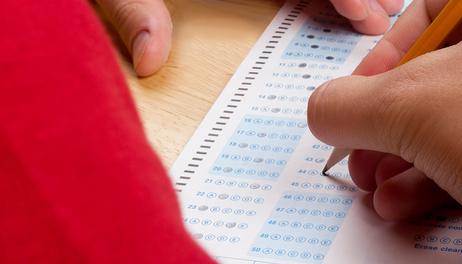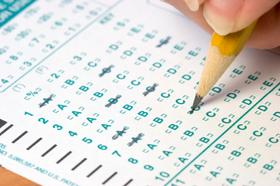After hours of cramming, attending test prep courses, and enduring long hours of practice exams, students wonder how much-standardized test scores matter.
Some experts argue that standardized test scores are not an accurate measure of a student’s intelligence, while others assert that these scores help gauge a student’s abilities more accurately. With this raging debate, recent studies reveal the true influence of standardized test scores on a high school student’s college application and acceptance.
Why Take Standardized Tests?
With a rising number of students applying to community colleges and universities, most schools now require all applicants to complete standardized tests. The most popular standardized tests include the SAT or the ACT assessments. In fact, according to Scholastic, American students today are among the most tested students in the world! Studies show that students combined in the United States take nearly 100 million tests yearly.
With the excessive testing forced upon American children and teens, many wonder: What’s the point? As Scholastic further explains, these tests have an array of reasons and purposes. Specifically, standardized tests are “Viewed as a measure of teacher and school competence and, in some cases, can affect a child's future placement in a school.”
Some tests are designed to ensure that all students meet average progress rates. In contrast, other tests aim to assess each student’s unique abilities as they continue to apply for higher education institutions. These standardized scores are evaluated and scrutinized for various reasons and purposes; however, some experts debate whether these scores genuinely play a role in a college applicant’s acceptance or denial of one’s school of choice.
Peering Through the Collegiate Looking Glass
Time Magazine says colleges look at more than an applicant’s standardized test scores. Specifically, colleges examine each applicant’s overall GPA, coursework, extracurricular activities, and entry essay. Of course, a college does, in fact, take note of a student’s test results. The main answer as to whether or not one’s test scores matter is dependent upon each school and university’s acceptance standards.
Essentially, each university designates a specific weight percentage for each element of an applicant’s information. For example, one school may count a student’s test scores as 50 percent of their application weight, while another may only designate 25 percent of value to the SAT. With unique acceptance standards, each school has a different formula that determines the significance of the various application factors, including GPA, test scores, recommendation letters, and other considerations.
According to the Chronicle of Higher Education, over 60 percent of schools in the United States designate more weight to an applicant’s standardized test scores than any other category. In addition, it appears that universities, especially the elite ones, value the SAT score more in their admissions evaluation. For example, over 78% of freshmen entering Yale University in 2007 had math and verbal SAT scores over 700 – a stark contrast to the numbers in 1989 when only 33% of freshmen had verbal scores of 700.
Penn College of Liberal and Professional Studies is one example of a school that denotes a large portion of weight to standardized scores. According to Penn, various standardized tests are required for a student to send in his or her application for review. As Penn reveals, these various tests and each student’s scores play a significant role in whether or not an applicant is accepted or denied.
Are My Test Scores High Enough?
As potential applicants begin to seek out schools of interest, it is highly recommended that all students review each school’s average acceptance rates and information. For example, most universities post their average accepted student’s SAT/ACT scores and average accepted student’s GPA. If you are far off from these average rankings, you may want to consider re-taking your standardized test, or you may even want to look into additional backup schools for an alternate plan if you’re not admitted.
The best approach when applying to any college is to plan. Allow yourself to take the required standardized tests multiple times if needed. Also, even if your average scores put you in a position where you’re confident you will be accepted to your school of choice, always prepare for the possibility of being turned down. As schools receive an increasingly large number of applicants each year, the acceptance standards continue to soar. Apply to several schools so you don’t feel trapped without a backup agenda.
Questions? Contacts on Twitter. @publicschoolreview












